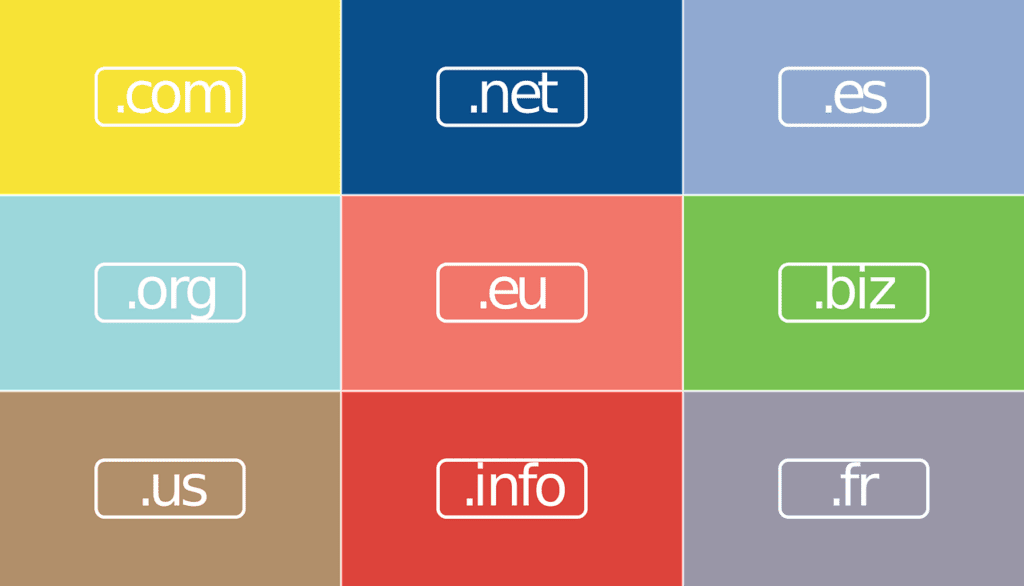
A well-chosen domain name is the foundation of a successful online presence. In this post, we’ll explore nine common domain name mistakes that can hinder your website’s growth and reputation. By avoiding these pitfalls, you can ensure that your domain name works hard for your business.
Remember when you first heard of Google? The simple, memorable name instantly stuck. It’s a prime example of a domain name done right. A good domain name can be the difference between a business that booms and one that’s buried beneath a mountain of forgettable websites.
A study by domain registrar GoDaddy found that 77% of consumers say a memorable domain name is more likely to make them trust a business. That’s a powerful statistic that underscores the importance of choosing the right domain name.
From choosing a domain that’s too long and complicated to overlooking the importance of mobile-friendliness, we’ll delve into a range of common domain name mistakes. We’ll also explore the impact of keyword usage, TLD selection, and social media presence on your domain name’s effectiveness. By the end of this post, you’ll have a clear understanding of how to avoid these pitfalls and choose a domain name that drives traffic and boosts your brand.
1: Choosing a Domain Name that’s too long:
A long, convoluted domain name is a surefire way to deter potential visitors. Shorter domain names are easier to remember, type, and share. For instance, compare “ublesempdigitalagencynorthernireland.com” to “ublesemp.com”. The latter is much more concise and user-friendly.
Long domain names can negatively impact your website’s SEO. Search engines often prioritise shorter, keyword-rich domains. Additionally, longer URLs can look less trustworthy to users, potentially hurting your click-through rate.
2: Using Hyphens and Numbers:
While hyphens and numbers might seem like a clever way to incorporate keywords into your domain name, they can actually harm your website’s visibility and user experience. Hyphenated domain names are harder to remember and can be easily misspelled. For example, “my-awesome-website.com” is more prone to errors than “myawesomewebsite.com.”
Search engines may treat hyphenated and numeric domains differently. They might not give them as much weight in search rankings. Additionally, some users may perceive hyphenated domains as less professional or trustworthy.
3: Ignoring Brandability:

Your domain name is a crucial part of your brand identity. It’s the first impression you make on potential customers, and it can have a significant impact on your brand’s reputation. A strong domain name should be memorable, relevant, and easy to understand.
For example, consider the domain name diy.com, this is the website for B&Q, the UK’s leading home improvement and garden living retailer. The domain diy.com is short, memorable, and is also the name of the activity their target customers want to carry out. Imagine if their domain was bandqhomeimprovementsupplies.com, you would never remember it! Although diy.com is perfect for B&Q, most short and extremely desirable domain names have been registered already by predatory resellers who know large corporations will pay whatever it takes to get the domain name they want (or need) for their business. But with some imagination, you can secure a clever domain name for a reasonable price to make your small business stand out.
A domain name that doesn’t align with your brand can confuse potential customers and dilute your brand message. For instance, if you’re a high-end fashion brand, a domain name like “cheapclothes.com” would be a complete mismatch. It would confuse customers and damage your brand’s reputation.
4: Overlooking Keywords:
While it’s important to choose a memorable and brandable domain name, you also need to consider the role of keywords in your domain name selection. Keywords can help your website rank higher in search engine results pages (SERPs).
However, it’s important to incorporate keywords naturally and avoid keyword stuffing. Keyword stuffing is the practice of cramming keywords into your domain name, which can negatively impact your website’s SEO and user experience.
Here are some tips for incorporating keywords naturally into your domain name:
- Use relevant keywords: Choose keywords that are relevant to your business and target audience.
- Keep it concise: A short, keyword-rich domain name is more effective than a long, keyword-stuffed one.
- Prioritise brandability: Don’t sacrifice brandability for keywords.
By following these tips, you can choose a domain name that is both keyword-rich and memorable.
5: Choosing a Complex TLD:

While there are many different TLDs (top-level domains) available, it’s generally best to stick with a common TLD like .com, .net, or .org. These TLDs are widely recognised and trusted by users.
Less common TLDs, such as .biz, .info, or country-specific TLDs, may not be as widely recognized. This can lead to confusion and mistrust among users. Additionally, some search engines may not give as much weight to websites with less common TLDs.
If you’re considering a less common TLD, it’s important to weigh the potential benefits against the risks.
6: Not Checking Availability on Social Media:
Consistent branding across all platforms is essential for building a strong brand identity. When choosing a domain name, it’s important to check its availability on popular social media platforms like Twitter, Instagram, Facebook, and LinkedIn.
If your desired domain name is already taken on social media, it can lead to confusion and frustration for your audience. It may also force you to compromise on your brand name or create multiple accounts with similar but slightly different names.
To avoid these issues, it’s important to do your research and secure your brand name across all platforms.
7: Forgetting About Mobile:
In today’s mobile-first world, it’s crucial to choose a domain name that’s easy to remember and type on mobile devices. A long, complicated domain name can be difficult to input on a small screen, leading to frustration and potential abandonment.
When selecting a domain name, consider the following tips:
- Keep it short and sweet: Shorter domain names are easier to remember and type on mobile devices.
- Avoid hyphens and numbers: These can be difficult to input on mobile keyboards.
- Choose a memorable domain name: A memorable domain name is more likely to be remembered and typed correctly.
- Test your domain name on mobile devices: This will help you identify any potential issues.
8: Ignoring Future Growth:
When choosing a domain name, it’s important to think long-term. A domain name that’s too specific to your current niche or product offering may limit your future growth potential.
For example, if you’re a small business that sells handmade jewelry, a domain name like “janeshandmadejewellery.com” may be too specific. If you decide to expand your product line to include accessories or clothing, your domain name may no longer be relevant.
Instead, consider a more general domain name like “janesboutique.com” or “janesfashion.com” These domain names are more versatile and can accommodate future growth.
9: Not Considering Internationalisation:

If you have ambitions to expand your business to international markets, it’s essential to consider the impact of your domain name on global audiences. A domain name that’s difficult to pronounce or remember in other languages can hinder your international growth.
Internationalised Domain Names (IDNs) offer a solution to this problem. IDNs allow you to use characters from non-Latin scripts in your domain name, making it more accessible to users in different countries. For example, a Chinese company could use a domain name that includes Chinese characters.
By using IDNs, you can:
- Improve your brand recognition: An IDN can help you establish a stronger brand identity in foreign markets.
- Enhance user experience: IDNs can make your website more user-friendly for international visitors.
- Boost your SEO: IDNs can help you rank higher in search engine results for local language queries.
However, it’s important to note that IDNs can be more complex to manage and may require additional technical expertise.
Conclusion
In this post, we’ve explored nine common domain name mistakes that can hinder your website’s success. From choosing a domain name that’s too long and complex to overlooking the importance of mobile-friendliness, these mistakes can have a significant impact on your online presence.
If you’re unsure about how to choose the perfect domain name for your business, get in touch and one of our team of experts can help. We can assist you with domain name selection, registration, and management. If you’re ready to register a domain name we can help you there too.
Remember, a well-chosen domain name is an investment in your business’s future. So, take the time to choose wisely and avoid these common pitfalls.
